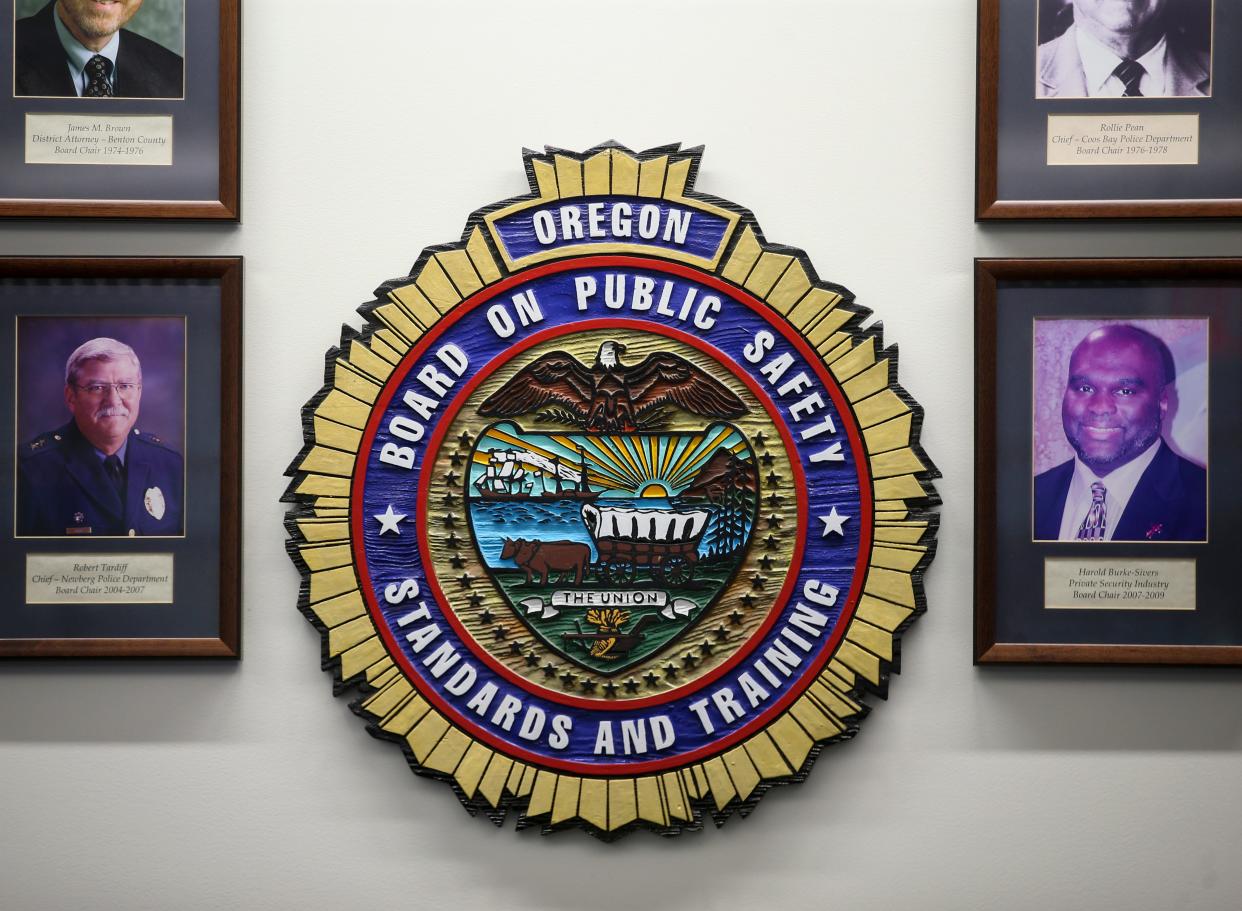Oregon DPSST to approve private security licenses amid calls for accountability

This story was updated throughout at 1:55 p.m.
The Department of Public Safety Standards and Training has determined some 1,000 private security companies in Oregon will be required to obtain new licenses by Jan. 1, based on legislation passed in 2021.
Private security employers and contractors also will be required to pay fees of up to nearly $46,000 to comply with the law.
The Private Security and Investigator Policy Committee on Tuesday approved and amended previous revisions to rules adopted to enact House Bill 2527, which lawmakers passed in 2021 to regulate the private security industry.
"There wasn’t really any standardization, and because of that, we saw reports of excessive use of force, discrimination, sexual assault and harassment, and wage theft,” said Alan Dubinsky, spokesperson for SIEU 49 chapter, a union that represents private security employees.
Before the 2021 law, private security companies were not required to obtain a DPSST license.
Previously, agency standards for private security professionals included attending basic unarmed and firearms courses and taking gun safety and marksmanship exams. DPSST also required private security employees to "be of good moral fitness" as determined by a criminal background check, department investigation or other reliable sources.
The companies were not required to provide any training to prevent discrimination, SIEU 49 political organizer Yasmin Ibarra said in a 2021 letter to the Oregon House Judiciary Committee.
Ibarra noted a 2018 case in which a security officer at the Portland DoubleTree “claimed a Black man was ‘loitering’ in the hotel lobby and had him removed.” The man was a hotel guest calling his mother on his phone, Ibarra said.
The year before, Homefront Security private security guard Gregory Capwell shot and killed a man in the parking lot of Best Western Plus Mill Creek in Salem. Capwell was sentenced in 2018 to life in prison. He had certifications dating back to 2010 and had previously been charged in 2011 with fourth-degree assault, reckless driving, and reckless endangerment, the Statesman Journal reported.
Changes for private security companies and their employees, contractors
The 2021 legislation made the following changes for private security companies and their employees and contractors:
Private security companies must provide education on preventing sexual assault and discrimination and educate employees on whistleblowing protections.
Private security employees also must undergo stringent psychological and gun safety training.
Makes the act of providing or retaining security services without a license a Class A violation.
Public comment on DPSST committee amendments to the rules is scheduled to end Jan. 24. Unless there are substantial comments that prompt re-examination, the committee will forward the amended rules to the DPSST board.
The board will likely pass the revised rules between late April and early May, said DPSST spokesperson Sam Tenney.
Meantime, Tenney said the following temporary rules become effective Friday when licensing applications will be available.
In August, the committee of DPSST decided private security companies and their contractors each must pay either $312 for a six-month license ending June 30, 2024, or $936 for a six-month license with a 12-month renewal ending June 30, 2025. The annual fee typically will be $624.
Private security companies must prove their ability to pay wages. Depending on the company's size, the recommended ranges would be between $7,500-$25,000 in proof of wage pay abilities. A $5,000 tier was added for companies with five employees. Companies can provide proof through an irrevocable line of credit, a cash or cash-equivalent deposit, or a surety bond. The rule is intended to ensure private security professionals get paid.
Companies and contractors must carry liability insurance that is anticipated to cost up to $20,000 a year.
Members of the committee expressed concerns Tuesday about the financial impact on non-profits and small businesses.
Supporters of the amendments noted the law as it stands could benefit the quality of private security companies.
"Maybe this will be good for the industry," said committee member Dan Lenzen. "Maybe we'll get companies that can hold that irrevocable line of credit and that can afford to pay their employees."
For questions, comments and news tips, email reporter Christian Willbern at cwillbern@statesmanjournal.com
This article originally appeared on Salem Statesman Journal: DPSST to license private security businesses and contractors

